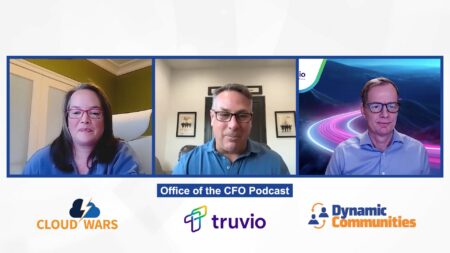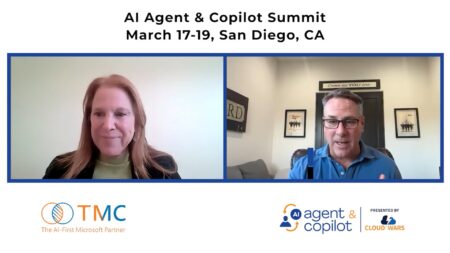
Welcome to the AI Copilot Podcast, analyzing the latest AI Copilot and agent developments from Microsoft and its partners, delving into customer use cases, and exploring how AI plus the Cloud helps customers reimagine their business. In this episode, Tom Smith speaks with Mike Simms, vice president of data and AI at Columbus Global, a consulting firm with expertise in ERP systems, including Microsoft Dynamics 365, as well as data and AI. Simms is also on the programming committee for AI Copilot Summit NA taking place in March. The discussion focuses on data readiness.
Highlights
Data’s Importance and Value (01:28)
Data is the most important context of anything having to do with analytics and AI, Simms says, because all decisions are based on available data and how data is modeled. It’s especially important to have the right type of data that’s pertinent and accurate for the specific models being built. If those quality measures aren’t met, decision-making will be skewed. It’s very important to put in infrastructure to add more data to a model, continuously train it, and create more accurate results.
What Successful Projects Look Like (02:52)
Simms recounts an AI project (before GenAI hit the market) that went off the rails and explains why. He notes it was a “technology first” project, driven by IT, which was the first mistake. It would have been successful if there’d been a focus on the business case and ROI earlier on. There was also mixed data quality coming out of operational systems and there wasn’t the correct exploratory data analysis to ensure the right mix of data. The project was canceled.

AI Agent & Copilot Summit is an AI-first event to define opportunities, impact, and outcomes with Microsoft Copilot and agents. Building on its 2025 success, the 2026 event takes place March 17-19 in San Diego. Get more details.
Contrast that failure with a successful recent GenAI project Columbus has executed. The project has components that are GenAI and traditional AI. What’s working well: direct engagement with business stakeholders. The focus was on a business problem identified by the customer so Columbus has engaged with SMEs on the business side. The work focused on building a viable proof of concept with the level of accuracy needed for a successful project. The work also included the exploratory data analysis that was missing in the first project. The business problem was the need to increase throughput in the classification of items.
Keys to Aligning AI, Business (07:35)
The right use cases are key. Columbus has a library of use cases built by its center of excellence that gets shared with the customer and is used for idea creation or things that can help their business in different areas. The use cases are horizontal and vertical; the latter apply to Columbus’ core vertical industries: manufacturing, food and beverage, retail, and life sciences.
Data Quality Dimensions (09:14)
The six data quality dimensions that Simms references are accuracy, completeness, consistency, uniqueness, timeliness, and validity. If data lacks completeness, for example, it may require changing an upstream process to meet data quality dimensions. Some customers are pretty close to achieving all six quality dimensions. The exploratory data analysis is used to pinpoint problematic issues that need to be fixed in their core systems.
Governance and Data Quality (13:27)
Data governance is important but often ignored in many cases by companies because it’s somewhat tedious. The technology org should not be the governing body of the data; they should be the helper and enabler of that. Microsoft has a tool called Purview that helps with that. It’s similar to ERP, where the business owns the implementations and all the rules around how that data gets processed and establishes what reports they need. IT is there to help guide that process.
Organizational Change Management Importance (16:17)
The concern is that people may not understand what the business is trying to do even if it gets explained several times. In certain cases, they look at it as a potential job loss so there’s a fear factor. And the business is concerned AI will be very costly and time-consuming with no guarantees of success and a lot of risk. Missteps in change management can derail a project really quickly “if you don’t get buy-in from the people that it’s affecting because they’re going to revolt against it. And that’s a challenge that organizations need to address.” People’s jobs will change but they’re going to have more high-value functions to focus on. Hopefully their work will become more interesting.
Ask Cloud Wars AI Agent about this analysis









